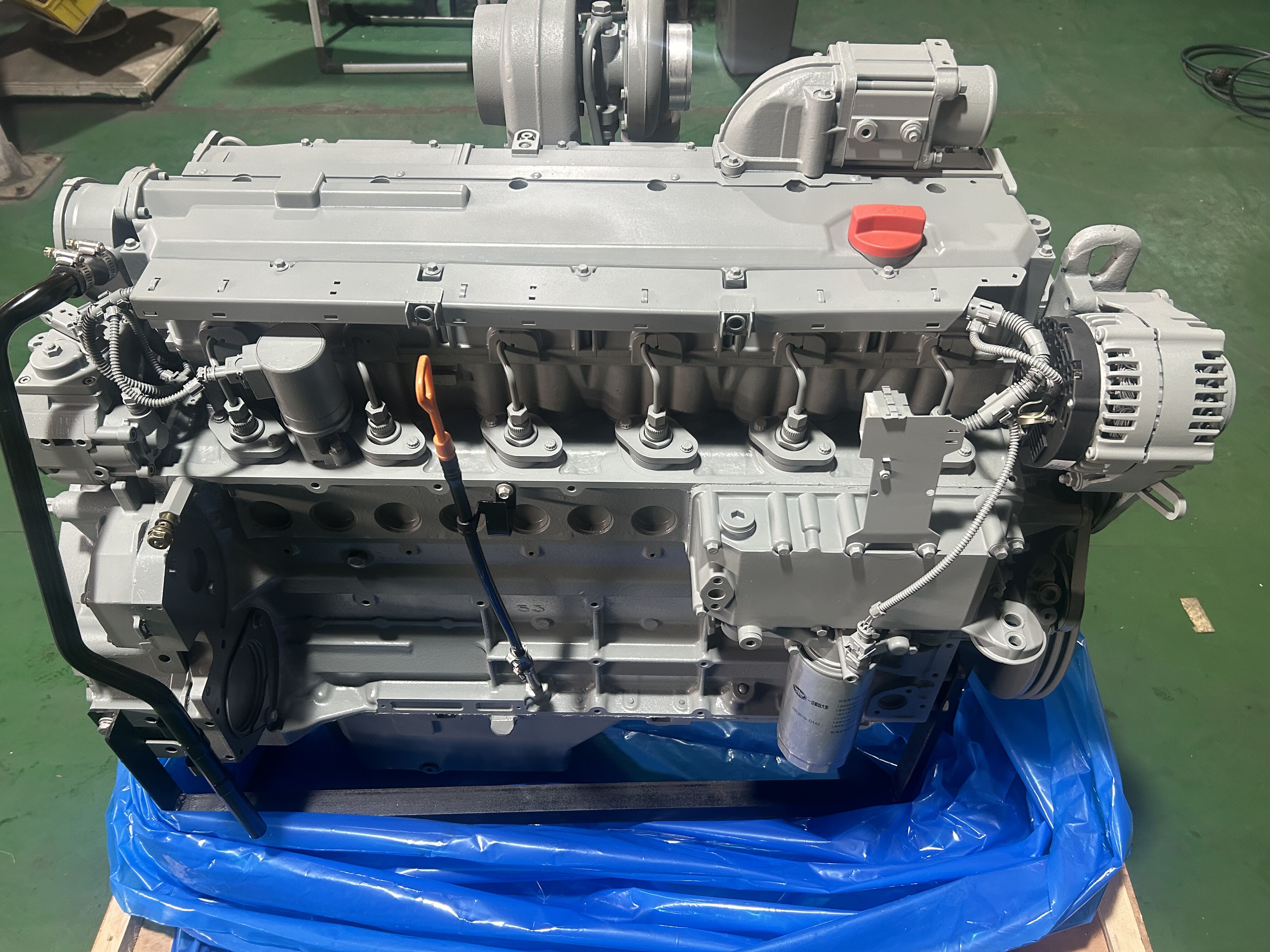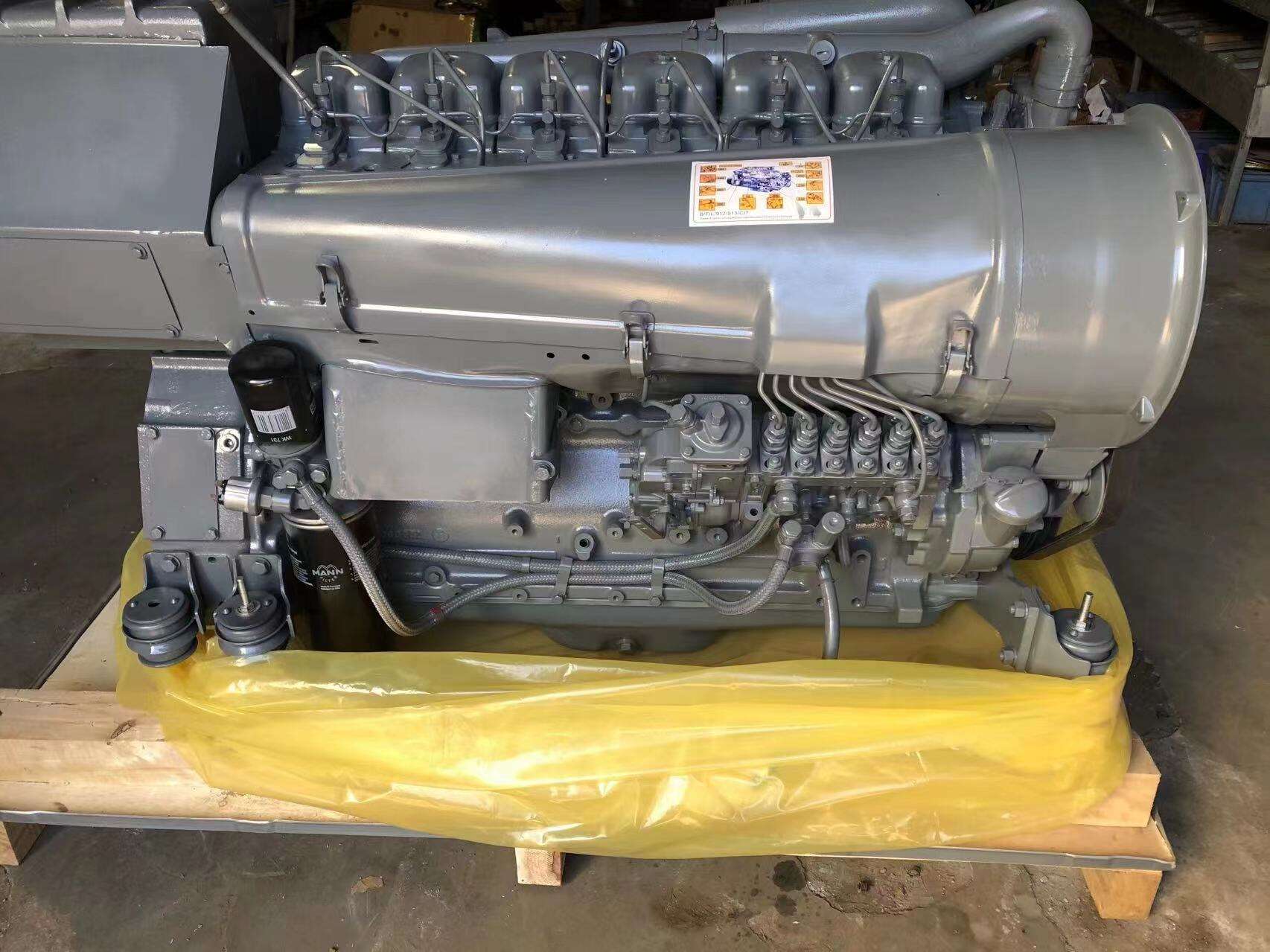Understanding Deutz Engine Temperature Management Systems
Efficient temperature control is crucial for the optimal performance and longevity of any Deutz engine. When these robust power units experience overheating issues, it's essential to address them promptly to prevent costly damage and downtime. This comprehensive guide explores the common causes of Deutz engine overheating and provides practical solutions you can implement in the field.
Common Causes of Temperature Control Issues
Cooling System Component Failures
The cooling system in Deutz engines comprises multiple interconnected components that must work harmoniously to maintain optimal operating temperatures. A malfunctioning water pump, damaged radiator, or compromised thermostat can trigger overheating episodes. Regular inspection of these components helps identify potential issues before they escalate into major problems.
Water pumps typically show signs of failure through unusual noises, visible leaks, or reduced coolant circulation. The radiator might develop blockages from debris or mineral deposits, while thermostats can stick in either closed or open positions, disrupting proper temperature regulation.
Coolant-Related Problems
Inadequate coolant levels or deteriorated coolant quality are frequent culprits behind Deutz engine overheating. The correct coolant mixture ratio is critical for maintaining optimal heat transfer properties. Using the wrong type of coolant or failing to maintain proper concentration levels can significantly impact cooling system efficiency.
Air pockets in the cooling system can also disrupt proper coolant circulation. These air locks prevent efficient heat transfer and must be properly bled from the system during maintenance procedures.
Environmental and Operational Factors
External Temperature Impacts
High ambient temperatures can push Deutz engines closer to their thermal limits, especially when operating under heavy loads. Proper ventilation around the engine becomes increasingly important in hot weather conditions. Ensuring adequate airflow and maintaining clean air intake systems helps mitigate the effects of challenging environmental conditions.
Operating in dusty environments can lead to radiator fin blockage, reducing heat dissipation efficiency. Regular cleaning and maintenance of cooling system components become even more critical in these conditions.
Operational Stress Factors
Continuous operation under heavy loads or at maximum power output can contribute to engine overheating. Understanding the relationship between power demands and cooling system capacity helps operators maintain safe operating temperatures. Implementing appropriate load management strategies can prevent thermal stress on the engine.
Proper engine warm-up procedures and avoiding sudden load changes can help maintain stable operating temperatures. Regular monitoring of temperature gauges and warning systems enables early detection of potential overheating situations.

Field Repair and Maintenance Solutions
Immediate Response Procedures
When Deutz engine overheating occurs, implementing the correct immediate response can prevent severe damage. Reducing load, ensuring proper ventilation, and safely bringing the engine to idle speed allows for gradual temperature reduction. Always avoid sudden engine shutdown unless absolutely necessary, as this can cause additional stress on engine components.
Visual inspection of obvious issues like coolant leaks, loose belts, or blocked radiator fins should be performed once the engine has safely cooled. Document temperature patterns and operating conditions to help diagnose recurring problems.
Preventive Maintenance Practices
Regular maintenance schedules should include comprehensive cooling system inspections. Checking coolant levels, testing coolant concentration, and inspecting hoses for signs of wear or damage can prevent many common overheating issues. Proper belt tension maintenance ensures optimal water pump operation and fan performance.
Maintaining detailed service records helps track component life cycles and predict potential failures before they occur. Following manufacturer-recommended maintenance intervals and using approved replacement parts ensures reliable cooling system operation.
Advanced Diagnostic Techniques
Digital Diagnostic Tools
Modern diagnostic equipment can provide valuable insights into Deutz engine cooling system performance. Temperature sensors, pressure testing equipment, and electronic diagnostic tools help identify issues that might not be apparent through visual inspection alone. These tools can monitor real-time operating parameters and log data for analysis.
Utilizing specialized diagnostic software enables technicians to access detailed engine management system data. This information helps pinpoint specific components or conditions contributing to overheating problems.
Professional Assessment Methods
Professional technicians employ systematic troubleshooting approaches to diagnose complex overheating issues. Pressure testing the cooling system can reveal internal leaks or head gasket problems. Thermal imaging cameras can identify hot spots or circulation problems within the cooling system.
Laboratory analysis of used coolant can provide valuable information about engine internal conditions and cooling system health. Regular oil analysis can also indicate potential problems that might contribute to overheating.
Long-Term Solutions and Upgrades
System Optimization Strategies
Implementing cooling system upgrades or modifications may be necessary for applications with challenging operating conditions. High-efficiency radiators, improved fan designs, or additional cooling capacity might be appropriate solutions for chronic overheating issues. Consulting with Deutz specialists ensures modifications maintain compliance with engine specifications.
Installing temperature monitoring systems with advanced warning capabilities helps prevent overheating episodes. These systems can provide early notification of developing problems before they become critical.
Performance Enhancement Options
Consider upgrading cooling system components to handle increased heat loads in demanding applications. Enhanced radiator designs, high-flow water pumps, or auxiliary cooling systems might be appropriate solutions. Always verify compatibility and maintain proper system balance when implementing upgrades.
Integration of advanced control systems can provide better temperature management through automated fan control and load management features. These systems help maintain optimal operating conditions while maximizing efficiency.
Frequently Asked Questions
How often should I check my Deutz engine coolant levels?
Daily coolant level checks are recommended before starting operations. Additionally, perform a complete cooling system inspection, including coolant concentration testing, at least quarterly or according to your engine's maintenance schedule.
What type of coolant should I use in my Deutz engine?
Always use Deutz-approved coolant specifications that meet your engine model requirements. The correct mixture typically consists of 50% distilled water and 50% antifreeze, but specific ratios may vary based on operating conditions and climate.
When should I seek professional help for Deutz engine overheating issues?
Seek professional assistance if basic troubleshooting steps don't resolve the overheating problem, if you notice persistent coolant loss, or if there are unusual noises or vibrations accompanying the temperature issues. Professional intervention is also necessary for any internal cooling system repairs or modifications.
Can weather conditions affect my Deutz engine's cooling performance?
Yes, extreme ambient temperatures, especially high heat and humidity, can impact cooling system efficiency. In hot conditions, ensure proper ventilation around the engine, keep cooling fins clean, and monitor temperature gauges more frequently. Additional cooling measures may be necessary in particularly challenging environments.

